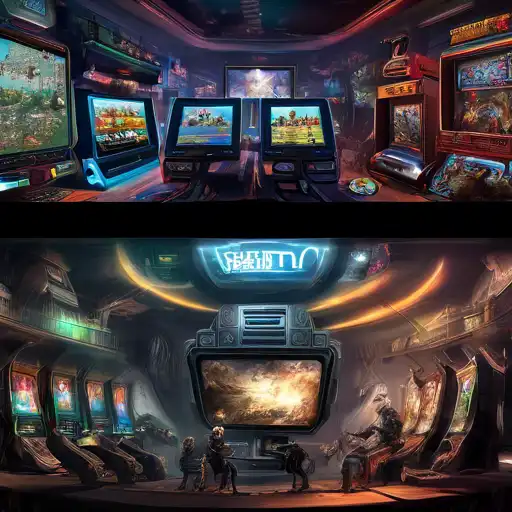The Revolutionary Journey of Gaming Technology in Modern Entertainment
Gaming technology has undergone a remarkable transformation over the years, evolving from simple pixelated screens to immersive virtual realities. This evolution has not only changed the way we play but also how we interact with digital content, making gaming a cornerstone of modern entertainment.
The Early Days of Gaming
The journey began in the 1970s with arcade games like Pong and Space Invaders, which introduced the world to the concept of digital entertainment. These games, though simplistic by today's standards, laid the foundation for the gaming industry, sparking a revolution that would grow exponentially in the decades to follow.
The Rise of Home Consoles
By the 1980s and 1990s, home consoles like the Nintendo Entertainment System (NES) and the Sega Genesis brought gaming into living rooms around the globe. This era saw the introduction of iconic characters such as Mario and Sonic, who became synonymous with gaming culture. The ability to play at home marked a significant shift in entertainment preferences, making gaming a mainstream hobby.
The Digital Age and Online Gaming
The advent of the internet in the late 1990s and early 2000s opened up new possibilities for gaming technology. Online multiplayer games allowed players to connect with others worldwide, fostering a sense of community and competition. Titles like World of Warcraft and Counter-Strike became cultural phenomena, demonstrating the potential of gaming as a social platform.
Modern Innovations: VR and Beyond
Today, gaming technology continues to push boundaries with innovations like virtual reality (VR) and augmented reality (AR). Devices such as the Oculus Rift and PlayStation VR offer immersive experiences that blur the line between the digital and physical worlds. Meanwhile, mobile gaming has made entertainment more accessible than ever, with millions of games available at our fingertips.
The Future of Gaming Technology
As we look to the future, advancements in artificial intelligence (AI), cloud gaming, and 5G technology promise to further revolutionize the gaming landscape. These developments will not only enhance gameplay but also create new opportunities for storytelling, education, and social interaction within virtual environments.
Gaming technology has come a long way from its humble beginnings, transforming entertainment in ways that were once unimaginable. As we continue to explore the possibilities of digital worlds, one thing is clear: the evolution of gaming is far from over.
Why Gaming Technology Matters
Beyond entertainment, gaming technology has significant implications for education, healthcare, and professional training. Simulations and gamified learning platforms are being used to teach complex concepts, while VR is helping medical students practice surgeries in a risk-free environment. The potential of gaming technology to impact various sectors underscores its importance in our digital age.
For more insights into the latest trends in gaming technology, check out our technology trends section.
